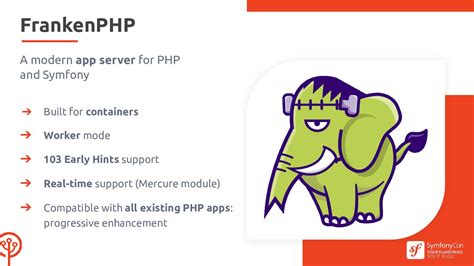In the ever-evolving landscape of PHP development, a new player has emerged: FrankenPHP. This innovative PHP application server is engineered to modernize and streamline traditional PHP setups by integrating PHP directly into a Go-based server environment. The fusion of Go’s performance prowess with PHP’s extensive ecosystem aims to revolutionize how developers deploy and manage PHP applications, making it a compelling option for those tired of the classic, sometimes cumbersome LAMP stack.
FrankenPHP stands out primarily due to its unique architecture. By employing Go as the process manager, it effectively handles PHP setups without the need for php-fpm. This is akin to revisiting how Apache integrated PHP in the past but with modern improvements. The key advantage here is that PHP is no longer a separate entity requiring fastcgi for communication. Instead, it becomes an integral part of the webserver, thereby simplifying configuration and potentially improving performance since there’s less inter-process communication overhead.
The introduction of FrankenPHP’s worker mode perhaps marks one of its most significant advancements. Designed to keep workers alive and ready with a pre-warmed framework, it eliminates the need to boot the framework on each request. For developers using modern PHP frameworks like Laravel or Symfony, this presents a tremendous boost in performance, drastically reducing request latency. Traditional setups like nginx with php-fpm, although highly optimized, don’t offer this advanced level of readiness.
Users’ comments also reveal concerns and insights about the deployment process. One common theme is the fear of exposing sensitive files when following the default Docker commands provided in the documentation. This underscores the need for robust, updated documentation to guide new and experienced developers alike in securely deploying their applications. A simple fix could involve setting up `.dockerignore` files correctly to ensure that sensitive files like `.env` and `.git` are never copied into the production environment. This is not only a FrankenPHP issue but a best practice in containerized application deployment.
Memory usage and performance are also heavily debated. Traditionalists argue that nginx with php-fpm setups are efficient enough and simpler to configure, while proponents of new methods like those introduced in FrankenPHP highlight the potential for reduced latency and better runtime behavior. The reality likely lies somewhere in between, depending heavily on specific use cases and workloads. As pointed out by users, the use of memory and how PHP spawns threads in FrankenPHP (thanks to Go’s robust handling) could provide significant advantages.
Another interesting aspect of FrankenPHP is its ability to package PHP applications as standalone, self-executable binaries. This feature can drastically simplify deployment by bundling all dependencies into a single file. For developers accustomed to managing multiple containers or dealing with complex deployment pipelines, this can be a game-changer. Moreover, this paves the way for distributing PHP applications in a more Go-like fashion, moving away from the historically cumbersome dependency management that often plagues PHP projects.
In summary, FrankenPHP represents a bold step forward for PHP application servers. By merging the robustness and performance of Go with the flexibility and extensibility of PHP, it opens new avenues for developers seeking efficiency and simplicity. While traditionalists might remain loyal to their tried-and-true setups, those willing to explore this hybrid innovation could find themselves at the forefront of a more streamlined and potent development experience.


Leave a Reply